13 People Who Discovered Hidden Truths About Their Partners

Something as simple as chewing can make a big difference in our bodies and improve our overall health. The process of chewing up food mixed with saliva helps absorb all the nutrients we need more easily, which is why it’s best to chew your food slowly and thoroughly — about 32 times each bite. That goes to say that you are not only what you eat, but also how.
Bright Side offers a list of benefits that chewing has on our bodies, and it made us want to munch on our food for a longer time.
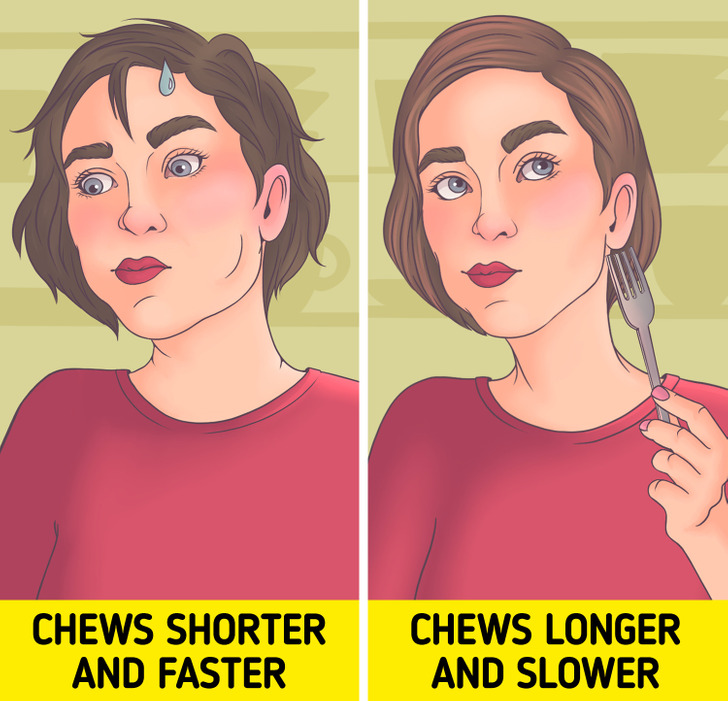
Think about it — if you take longer to chew your food, it’ll take longer for you to finish it, and that means you eat less of it and your brain then tells you that you’re full.
Not only that, but eating slowly and chewing carefully can help you if you are avoiding weight gain and trying to control your appetite. It may also fasten your metabolism, prevent overeating, and speed up the blood circulation in your belly.
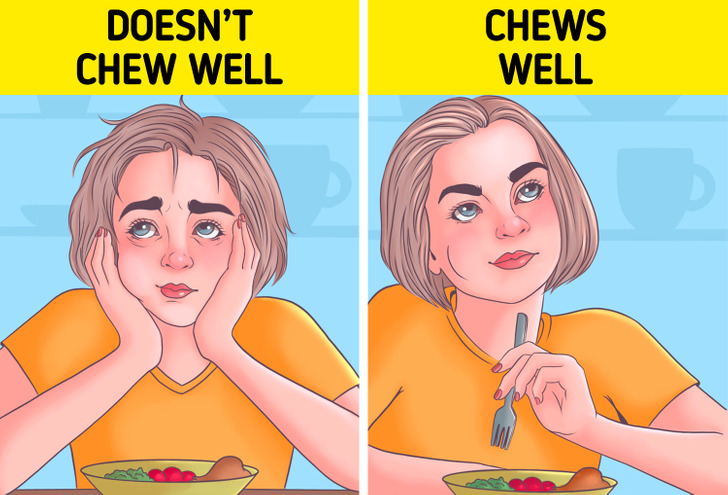
Chewing is actually related to memory and overall cognitive ability. It boosts the blood flow and oxygen to your brain, resulting in a better mental outcome.
People who chew well have better attention, alertness, problem-solving, information acquirement, decision-making skills, etc. Those who chew poorly may have difficulties with vocabulary, memory, and learning overall.
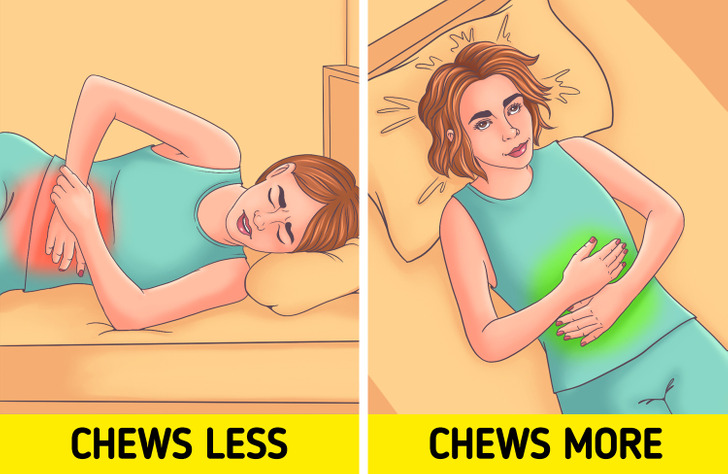
If you chew and swallow fast, your digestive system can become unbalanced and your body might end up not breaking down the food properly. This can result in acid reflux, cramps, bloating, and more. If it’s too late and you ate too fast, there are some things you can do to improve your digestion issues.
What to do:
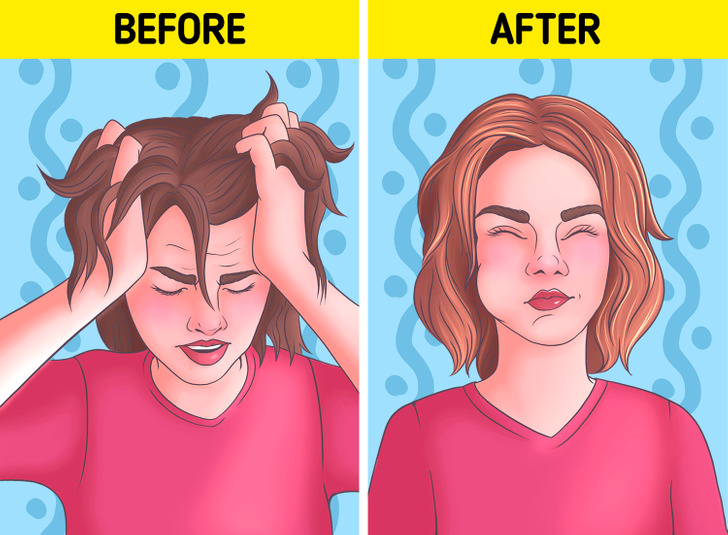
Chewing is a great way to reduce the stress hormone, and it can be a stress-coping behavior. When you chew while stressed, it may prevent you from getting anxious and make your bones stronger.
In addition, when a pregnant woman is stressed, her child may develop depression when they grow older. You may simply chew gum as a stress-coping behavior, it might help!
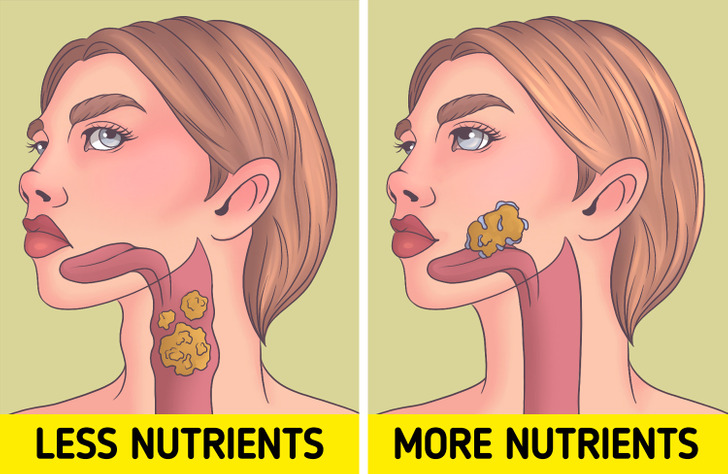
The organs in your body, such as your liver and intestines, aren’t the only things that control the nutrients you gain — it actually all starts in your mouth, more specifically, from chewing.
The magic happens when the food combines with our saliva. Chewing food mixed with saliva allows us to absorb the nutrients better so that our brains can get what they need easier.

Chewing gum, for example, may help you concentrate better and maintain attention for things that take some time to work on. This is because when you chew, the drift of oxygen travels to parts of the brain that have to do with attention, and when we get more oxygen, we are more likely to stay vigilant.
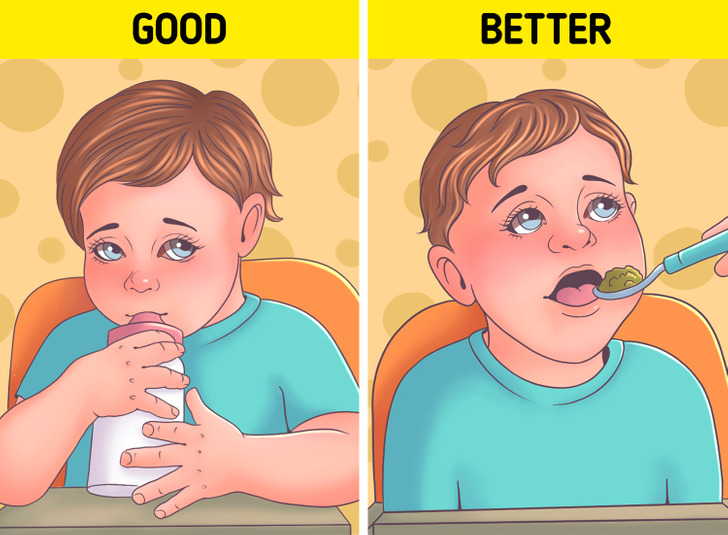
When babies start eating actual foods, chewing helps them drill their tongues, which is crucial for a lot of sounds they make as they learn to pronounce words. Concrete foods help to advance their jaw, along with the lips and tongue muscles (all are important for speech).
If you start giving them solid foods later than required, it may cause your baby to be more fussy and ignorant to new foods and also have impaired speech sounds as they grow older.
Do you chew slowly and thoroughly? Would you consider changing your chewing habits after reading this article?











